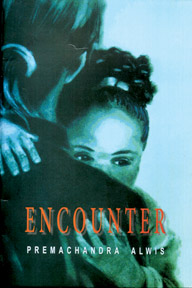Humanism as creative thinking
 Stemming from mini story forms such as parables, anecdotes, tales,
legends and myths, the modern narrator forms a new mode which is known
as short story. It has come a long way. All over the world, the genre
had inspired people to make various types of experimentations. Stemming from mini story forms such as parables, anecdotes, tales,
legends and myths, the modern narrator forms a new mode which is known
as short story. It has come a long way. All over the world, the genre
had inspired people to make various types of experimentations.
The pattern of writing a short story also had changed over the years
in keeping with various literary and creative trends. The experiments go
on, to the point that quite a number of new coinages have sprung up like
stories in the form of human interest. They revolve around actual human
experiences.
There are magic narratives called fantasies and illusive make-believe
stories based on biographies of living beings. Some short story writers
like Jumpa Lahiri have shown that a story need not be confined to a few
words in the accepted sense, and hence they are called long short
stories. With the advent of the print media such as newspapers, the
traditional pattern had changed in the structure as well as the form.
Literary analysis
Some creative writers have written mini short stories which
presumably is not a contradiction in terms of literary analysis. They
remain to be real in the shortest possible time. But this does not mean
that a narrative form is denatured or under assessed.
 The most recent collection of short stories I happened to read comes
from the well known translator cum journalist Premachandra Alwis. This
collection of seven short stories is titled as ‘Encounter and Other
Stories’ (2012 Suriya Publishers). This presumably is a maiden effort in
the compilation of short stories by a Sinhala writer in English. The most recent collection of short stories I happened to read comes
from the well known translator cum journalist Premachandra Alwis. This
collection of seven short stories is titled as ‘Encounter and Other
Stories’ (2012 Suriya Publishers). This presumably is a maiden effort in
the compilation of short stories by a Sinhala writer in English.
All the seven stories, I felt, are grappling and based on various
subject areas in the day to day life, packed with a human interest layer
of significance. Alwis makes an honest attempt to palpitate the hearts
of the reader through human experiences. I was moved by the first story
titled as ‘Human Compassion’, where the male character Aron is a hired
farmer of a rich man named Dayasena Mudalali. As Aron finds that his
child is not well, he had to borrow money from his employer to see a
doctor and buy medicine. But he is hesitant on knowing the cruelties and
perhaps the rough qualities of the trader.
But he reluctantly approaches him as an honest man. His wife Magilin
too knows that their honesty and the need to make the ends meet are
widening day by day. But he wants to approach his employer. We encounter
the normal ‘inhuman’ in a human situation, where the man faces man
becomes an enigma. The inhuman mudalali, who counts money, is shown as
an ironic reference to the deprived nature in the business world.
Inhuman conditions
The inhuman mudalali comes out with some nasty words of radical
disregarding the pathetic condition of Aron Mudalali. He takes it to be
‘yet another stale trick’, on the part of an employee. But the writer
shows that as opposed to cruelties in the world there are also
compassionate persons side by side. So within the same house of the
Mudalali, the reader encounters a girl, the mudalali’s daughter, who
comes to rescue. Unknowingly the sparkling side of events is revealed as
follows:
“Aron who raced back with a sense of utter frustration and despair
and also with impatience and resentment was greatly astonished at the
dead silence which prevailed in his house at the moment he reached it.
His wife and the sick boy were not to be seen. Other children were in a
cluster in the veranda.
“Where is Malli?” Aron questioned his eldest daughter.
“He was taken to the doctor.”
“What? How… by whom?’
“By Mudalali’s daughter in his car.”
“May the blessings of the triple gems be invoked on the kind hearted
girl who always made magnanimous gestures of the highest human
compassion!”
This, then, is just one example out of the seven stories in the
collection. The writer Alwis is seen as sensitive and imaginative
observer of human events. He selects them and shows how pathetic the
human predicaments are. In the right sense of the term he uses a
spiritual and psychological approach to narrate his stories.
One of the finest in the direction is titled ‘Man against a ghost’.
This story revolves round the chart of a farmer named Davith who took
the soil so hard that he does not see the lapse of time, the day and
night. But a moment comes when his own mind out of sheer vigilance, or
to say over-vigilance tends to disarray the human balance within him,
bringing about a disaster.
All in all, the stories are interesting, stimulating and resourceful
as insights of human conditions. I feel that the collection of stories
should reach the hands of the new generation of young readers, for a
wider discourse. For me, Premachandra Alwis’ ‘Encounter’ happened to be
a garland of incensed flowers.
[email protected]
|







